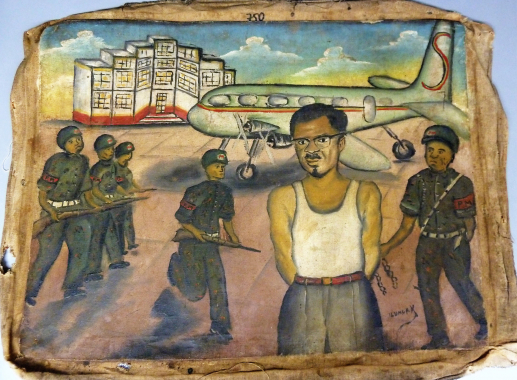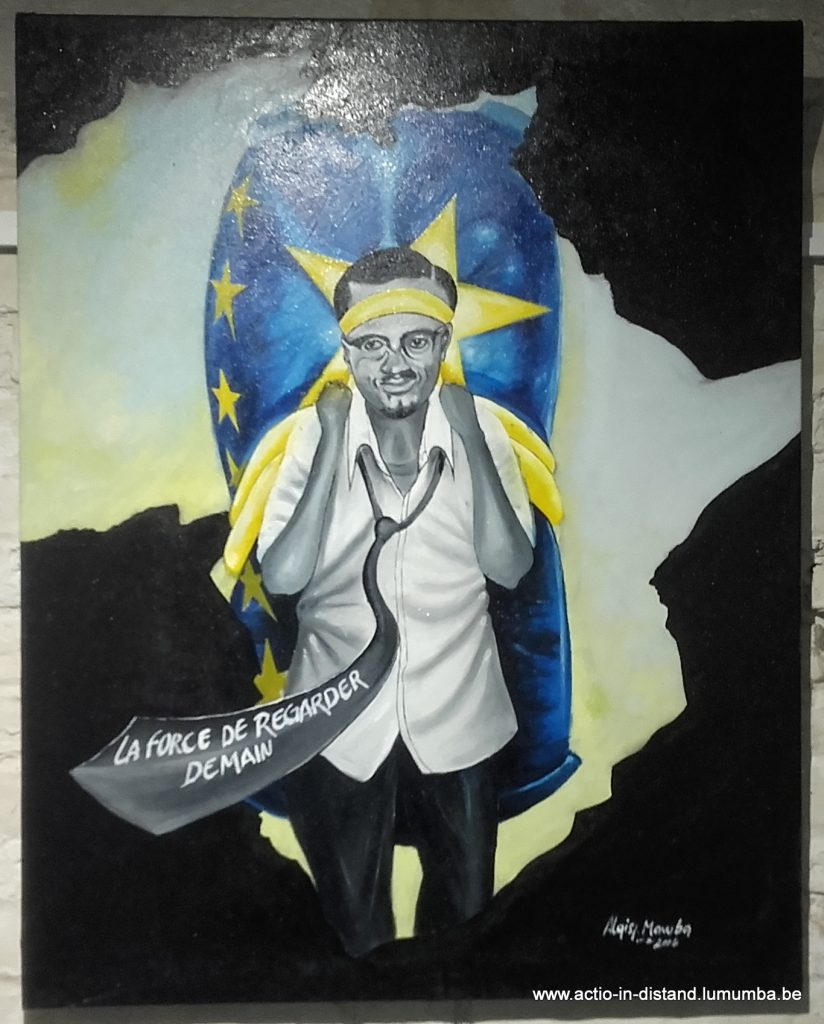ARTE “Alger: La Mecque des Revolutionnaires”, 2017
Patrice Lumumba was the father of Congolese independence and in becoming Prime Minister in 1960, Lumumba went into conflict with Congo’s former colonial power, Belgium, who sought to maintain some form of control over the country following Congo’s independence. Under the orders of the Belgian and American governments respectively, Patrice Lumumba was stopped and arrested by Colonel Mobutu using his control over the army, where he was brutally tortured in front of his wife and his son. Colonel Mobutu delegated Lumumba to Moïse Tshombe, who was in control of the rich province of Katanga, and ordered him to torture and then execute Lumumba in January, 1961. Algiers doesn’t forget Patrice Lumumba, the man who gave his life for the freedom of his people.
The most important assassination of the 20th Century – (De Witte, 2002)
The political stalemate that had continued following Tshombe and Katanga’s secession from the newly founded independent Congo, and the lack of genuine support received by Lumumba from the United States and the United Nations led Lumumba to look for support “Eastwards” in the form of the Soviet Union and his fellow African comrades as seen in his relationship with Fanon and the golden generation of African nationalists that developed in the 1960s (Kanza, 1994). This however placed Lumumba in a perilous position, as the arguments made by the likes of Kaza-Vubu and Tshombe also appealed greatly to those in Belgium who affirmed their developed belief that Lumumba was “anti-white and anti-West”, and thus posed a great danger to the development of the Congo. This resulted in each significant actor within the Congo Crisis seeking to “coup” the other with Colonel Mobutu emerging the eventual winner, with even the Untied Nations, under major influence from the United States recognising Mobutu and Kaza-Vubu as the legitimate occupiers of the Congolese seat in the United Nations General Assembly.
De Witte, an influential figure in the historiography of the Congo Crisis produced a book in 1999, republished in 2002, which contained various anecdotes and primary sourced information which eventually led to a governmental inquiry into the Belgium government’s role over the assassination of Lumumba, where De Witte openly holds the Belgian government and King Baudouin culpable alongside evidence indicating that the United States and even the United Nations all have dirty hands over the issue of Lumumba’s death and the consequent promotion of Colonel Mobutu as Head of State in Congo (De Witte, 2002). Following the Belgian Commission of 2001 sparked by De Witte’s book, further CIA records became public relating to plans forged by the CIA, with the backing of then President Dwight Eisenhower, to poison Patrice Lumumba as well as documentation proving Western backing in the forms of money and weapons for both Mobutu and Tshombe (De Witte, 2002).
Not only does De Witte’s work highlight the importance of academic work based on the use of primary sources but it also emphasises the need to modernise and understand that the production of historiographies on a particular issue can stem from entirely different regions of the world, even more so in today’s ever-connected world. It cannot be the case that if De Witte, a sociologist, had not dedicated a significant proportion of his life in following leads which aided the production of his book on the assassination of Lumumba, then such information, of which many Congolese people themselves would have been privy too, could have simply been swept under the carpet and much of the historiography based on specific and limited sources would continue to provide mainstream narratives which today have been found to be untrue or at least an altered version of the events that took place during the Congo Crisis and those who had significant influence over these events. This is where the works of historians such as Sapin and others are so important, not just for the thought-provoking analysis that art influenced by their lived experiences but also in their ability to portray such events in a variety of different forms, each presenting their own story, their own history and each contributing to the growing historiography of a pivotal moment in Congo’s history. More could and should be done to promote and accept these various different avenues that the practice of historiography can take place, whether that be through music, art, performance or scholarly work.
In the canvas paintings found above and below, much can be inferred from the nature of Lumumba’s depiction and how this also presents itself in the historiography of the Congo Crisis. The white vest, worn by Lumumba as seen also in the archival footage at the top, can be seen to represent a variety of things, most notably that of innocence and purity, which differs greatly from the darkness portrayed in the painting, showing Lumumba in a light which typically does not fit that of a ministerial figure in paintings relating to Congo history, as shown across this project through depictions of Tshombe and Mobutu. This ties in with the ripped trousers and the portrayal of Lumumba as being innocent, innocent and facing the punishment of representing himself as a Congolese man, not below nor above those around him which leads one to perceive the portrayal of Lumumba as being a man of his people, someone who did indeed give his life for the perceived freedom of his people, as suggested in the documentary. Below one also finds similar connotations with Lumumba porting the nation on his back, somewhat in a not too dissimilar manner to stories of Jesus carrying his cross. Moreover, one also finds a particular quote on Lumumba’s tie, “the strength to look at tomorrow” which symbolises many things, from Lumumba’s own personal ambitions for a Congo free from colonial rule and imperialism, to his dedication to the ideals of Pan-Africanism, with the quote attributed to a poem made by non other than Aime Cesaire, friend, comrade and fellow revolutionary in the struggle for freedom in the decolonisation process that Lumumba and Fanon so desperately fought for.



